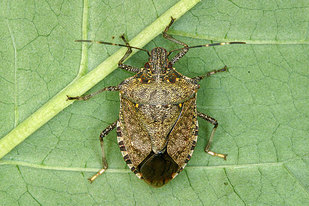 Compost Tea Reduces Egg Hatch and Early-Stage Nymphal Development of Halyomorpha halys (Hemiptera: Pentatomidae) Florida Entomologist 2014 Click for Full Text Scientists in Florida have shown compost tea helps control brown marmorated stink bugs. These stink bugs are a significant agricultural pest in the US and around the world. A non-areated compost tea extract made from a mix of mushroom compost and chicken manure was sprayed on egg masses laid by the stink bugs. The researchers found that the egg masses had a 13% drop in hatching, and even more improtantly, the nymphs that hatched were 3 times less likely to survive their first stage of development. The researchers do not conclude why compost tea has this affect, but do speculate that the microbes in tea may interfere with bacteria that live in the stink bug's gut. I wonder what other bugs are bugged by my tea?
0 Comments
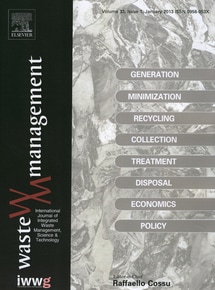 Effects of the main extraction parameters on chemical and microbial characteristics of compost tea Journal of Waste Management 2016 http://www.sciencedirect.com/science/journal/0956053X/52/supp/C This study used heavy statistics to show that tea should be brewed for not much longer than 48 hours, and used immediately. The compost was made from manure and greenwaste, and was brewed for up to 6 days, then stored for up to 6 weeks. The numbers show that a short brew time and immediate use will lead to a higher quality tea and response therefrom. 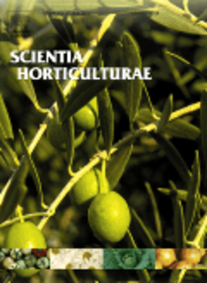 Enhancing sustainability of a processing tomato cultivation system by using bioactive compost teas Scientia Horticulturae 2016 http://www.sciencedirect.com/science/article/pii/S0304423816300814 In a 2 year study, an Italian research team has shown that aerated compost tea helps tomatoes yield more, resist disease, and helps them initiate more root growth. The researchers used 4 different types of compost, of which the manure based compost showed higher amounts of available nutrients, while the green-waste based compost helped initiate more root growth.  Potential Impact of Compost Tea on Soil Microbial Properties and Performance of Radish Plant under Sandy Soil conditions - GreenhouseExperiments Australian Journal of Basic and Applied Sciences 2016 Click For Article Radishes treated with compost tea had 150% Nitrogen , 92% more Phosphorus, and 253% more Potassium content in their leaves than those that were untreated. Compost tea helped the plants uptake nutrients in a major way. 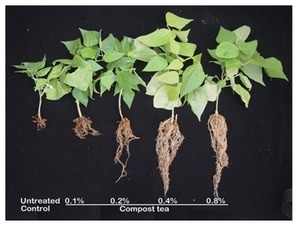 Effect of Aerated Compost Tea on the Growth Promotion of Lettuce, Soybean, and Sweet Corn in Organic Cultivation Journal of Plant Pathology 2015 https://www.ncbi.nlm.nih.gov/pmc/articles/PMC4564151/ Here we see that Compost Tea is well worth the effort. Four types of compost were brewed and then the available nitrogen was determined, as well as the density of microbial communities, along with their affect on plant growth characteristics. Across the board it was shown that aerating compost tea released more nutrients, increased microbial counts, and helped plants grow. Way to go AACT. 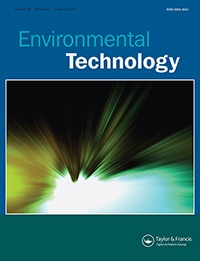 Properties of vermicompost aqueous extracts prepared under different conditions Journal of Environmental Technology 2016 http://www.tandfonline.com/doi/full/10.1080/09593330.2016.1231225 This paper shows the extraction efficiency (ability to measure) of N, P, K, Ca, & Mg all increased 33-50% in an aerated compost tea, as opposed to a non-aerated tea. The researchers used two different vermicomposts (horse manure being one, and apple pomace the other) under two conditions, aerated and non-aerated. This highest levels of nutrients extracted were seen after 48 hours of brew time. I had learned long ago that the main benefit was the addition of microbes, and not so much the nutrients, looks like there's some more learning to do..... |
Archives
June 2024
Categories
All
|
Contact Us
Why TeaLAB?TeaLAB is committed to helping people and their gardens to become more self- sufficient, healthier, and productive. Grow your sweetest corn, your biggest watermelon, your tallest quinoa, your tastiest tomato, and your happiest you.
TeaLAB was founded to teach people how to garden organically, so that we can become more closely connected with the land. Our goal has been to simplify growing methods so that gardeners have a positive experience in the garden. TeaLAB is where the garden meets the laboratory. From around the world and into your backyard, our products contain ingredients that are sourced both locally and globally. Using methods both ancient and cutting edge, TeaLAB promotes maximum biology. Grow with TeaLAB. |

 RSS Feed
RSS Feed
